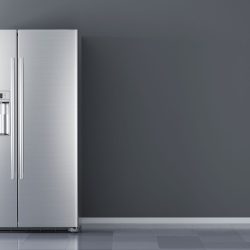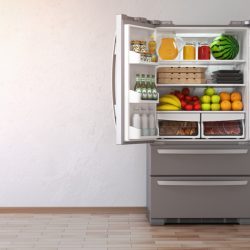Refrigerators can produce different kinds of noises such as humming, gurgling, and cracking. These sounds are the products of a refrigerator's regular operation, which makes it cold. However, you may hear disturbing sounds like mice (squealing) and chirping coming from the unit. We have researched different refrigerator noises, including their causes, and how to fix them.
When your refrigerator sounds like mice or makes a rattling noise, it’s probably because of the evaporator fan or the condenser fan. The fan can push air through different sections of the appliance and might accumulate dirt and debris which can alter its operation.
This is not a normal situation for a refrigerator, and there may be malfunctioning taking place. If you are currently experiencing this issue along with other fridge problems, then you may want to contact your service provider for help with the appliance.
Keep on reading, as we will discuss refrigerator problems, including squeaking noises. We'll cover these problems one by one, and how you can get fix them.
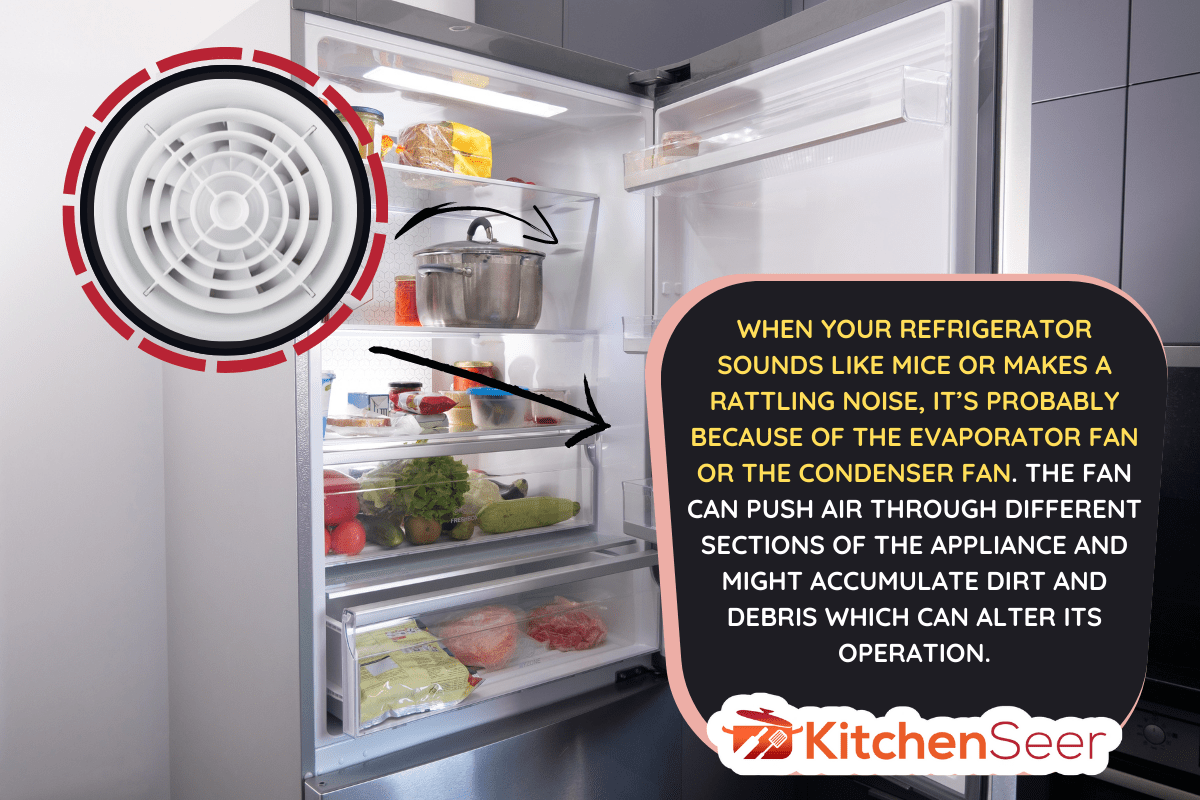
Why does your refrigerator squeak?
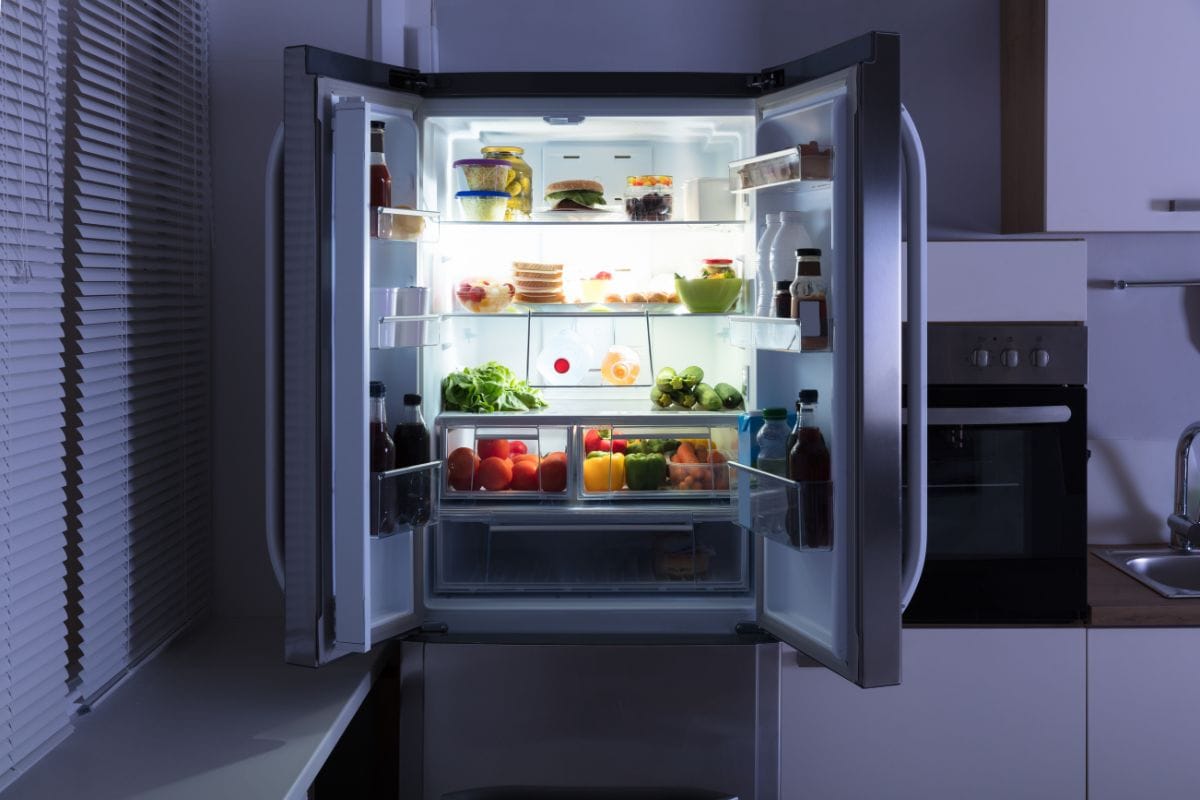
The squeaking noise you heard is probably coming from a fan inside your fridge.
A new model of refrigerator has a no-frost feature with two built-in fans: the evaporator fan and the condenser fan.
Manual defrost refrigerators do not have these fans. However, you might hear a squeaking sound whenever the compressor malfunctions or breaks. The compressor can be found in both manual and no-frost refrigerators.
Evaporator fan
The evaporator fan is a part of the refrigeration and cooling system which makes the fridge cold and makes your food fresh.
The evaporator fan allows the freezer and refrigerator to work efficiently. The fan removes the heat from the coil, which absorbs the heat from the freezer inside the fridge.
After that, the fan blows the hot air outside of the refrigerator. The evaporator fan also expels cold air inside your refrigerator by blowing air over the cold coils and to the entire section of the appliance.
How to fix a malfunctioning evaporator fan?
The evaporator fan is not working properly probably because of these reasons:
- Dirty
- Weak fan motor
- Bent
- Frozen over
A dirty, frozen evaporator fan can be easily fixed without using any tools. However, if the fan is bent, or if it has a weak motor, you need to call your technician. You will need to have a new fan installed.
Check out this product on Amazon.
When the evaporator fan is frozen, the first thing that comes to mind is to defrost. The ice blocks the main function of the evaporator fan, so it needs to melt the ice.
If this does not solve the problem, then you need to take off the panel so you can reach the evaporator fan. If the fan is dirty, take it off and clean the entire thing.
Check the fan by spinning it several times. There may be some blockage that is keeping the fan from working properly.
 Condenser Fan and Steps to Troubleshoot
Condenser Fan and Steps to Troubleshoot

Not all refrigerators have condenser fans. However, it plays a significant role in the cooling cycle of your fridge.
Refrigerators with a condenser coil do not have a condenser fan, but if the refrigerators have a condenser coil in a compressor, it should have a fan for it to transfer heat compression in the environment.
The condenser fan is the easiest to troubleshoot in the entire refrigeration system, but you need to use a digital multimeter. The fan operates anytime the compressor is working.
This digital multimeter is available on Amazon. Click here.
When the compressor runs, but the fan stops, then you need to do a replacement of the motor. If this problem is prolonged, the result would be a bad electrical network.
Failure in cooling operation
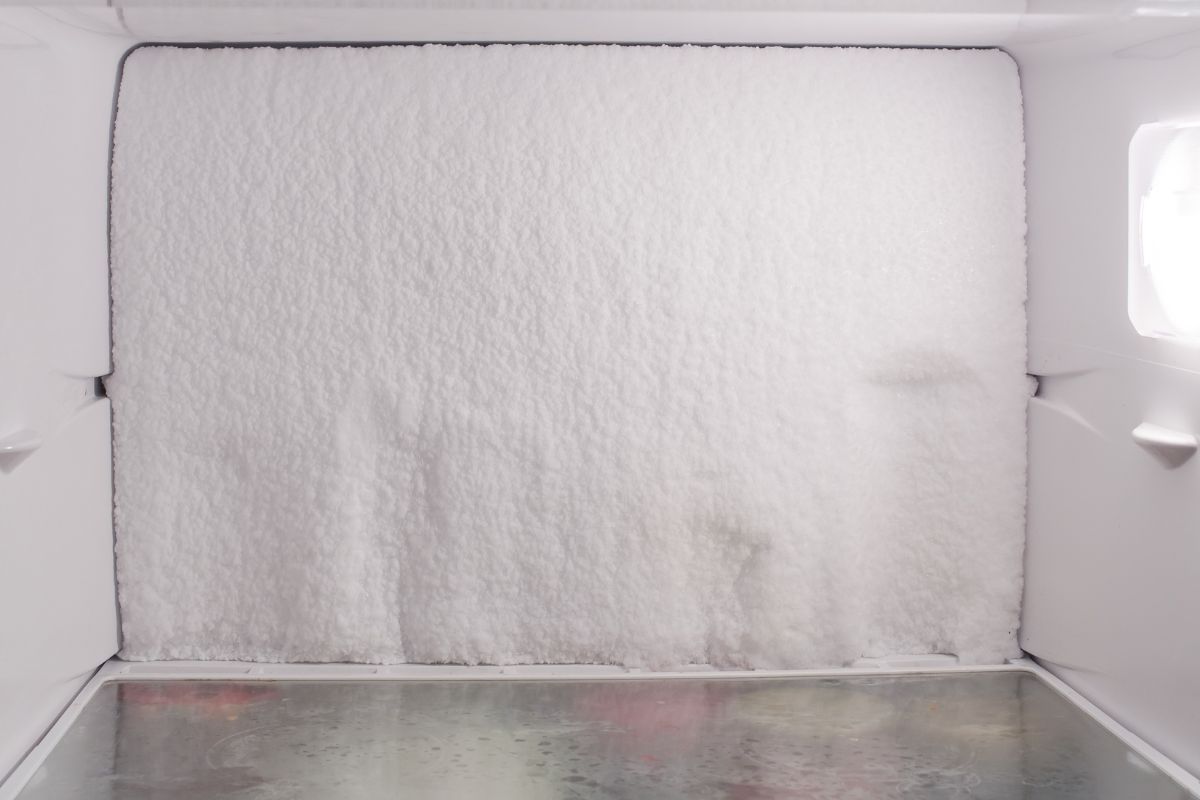
A condenser fan is vital in the operation of a refrigerator. It converts a compressed refrigerant from a gas state to a liquid state. The fan will pull the air to the condenser, which aids the heat transfer from the coil to the environmental air.
A defective fan not only causes the temperature to rise but also to overheat. This will lead to fridge malfunction and repair.
Here are three steps for troubleshooting a condenser fan:
Step 1. Examine the motor
Unplug the refrigerator. Try spinning the fan using your hand. The bearings may have dust and dirt stuck on them, and so the motor won’t start to run.
If the motor is tight and hard to turn, you can spray it with oil to penetrate the shaft.
Step 2. Check the motor windings
Let’s say you have excellent windings. Make sure to double-check the motor using your multimeter. You can use the usual continuity setting. Check between each winding and the motor frame.
Step 3. Check the continuity reading
If the motor is in good working operation, check for broken wires. Check the continuity reading several times. Also, check the wiring diagram located at the back of the refrigerator or inside the compressor.
 Call A Pro When You Hear These Noises
Call A Pro When You Hear These Noises
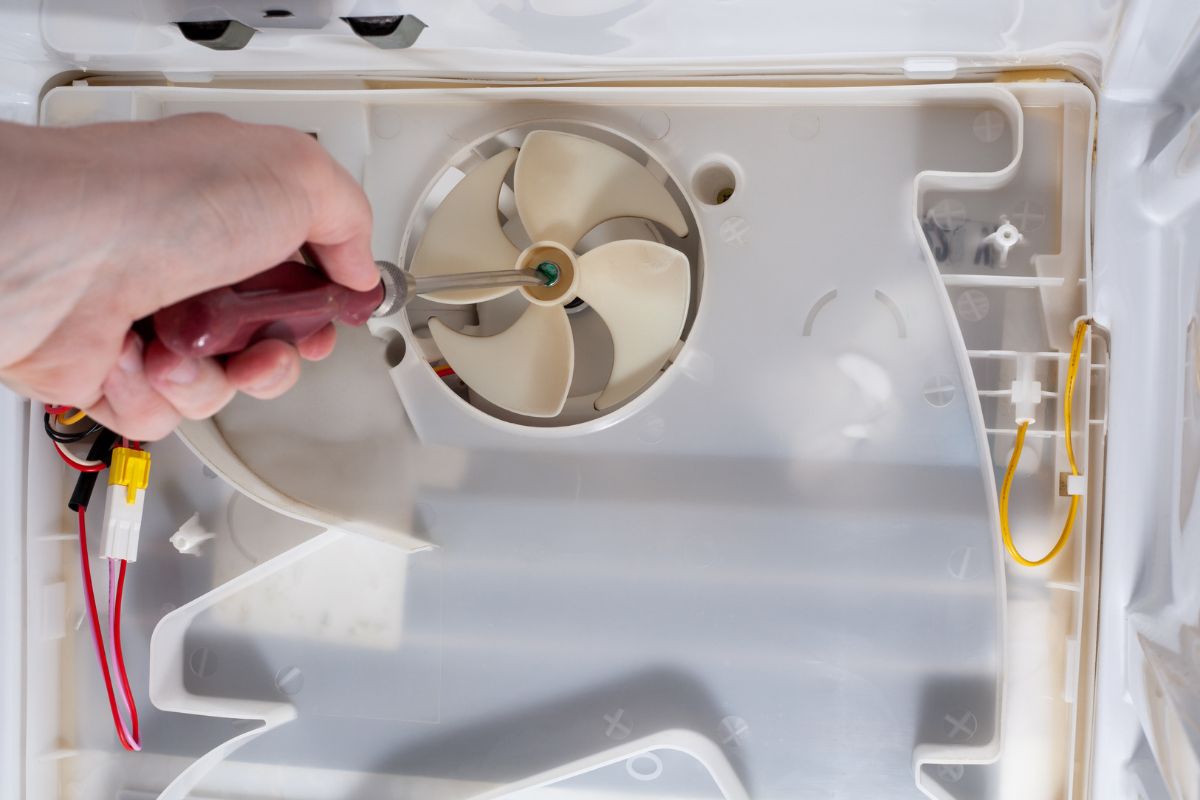
All refrigerators produce noise. But how would you know if the noise is a sign of concern?
Chirping and squealing sounds
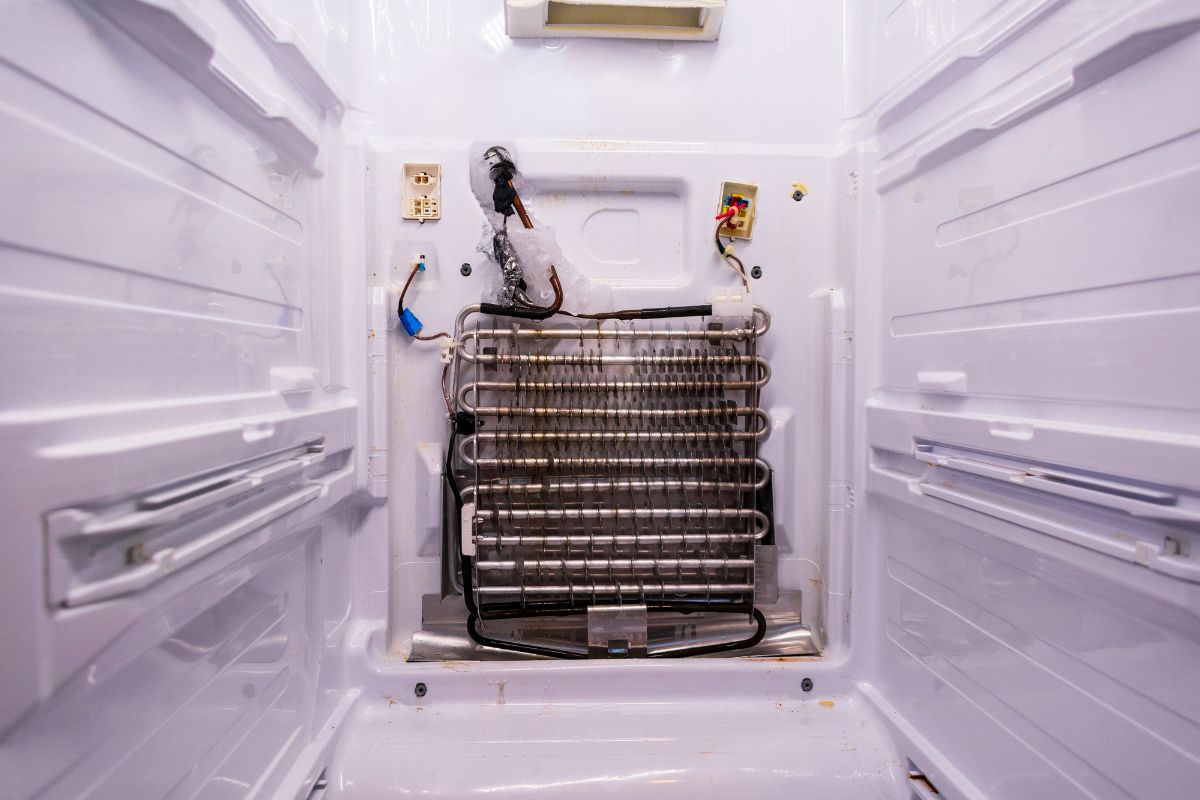
A refrigerator's normal sounds do not include the noises of a critter or a bird. If you hear a chirping or squealing sound, this can mean that you have a broken evaporator fan.
Assess the evaporator fan by taking out all the contents of the freezer. Look at the inside panel as well at the back of the freezer.
A screwdriver will open the back. Check if the fan's blades are running by spinning it a few times. Check all the wires and all signs of wear and tear.
Humming and buzzing sound
This is close to an electrical problem. Some units need a light replacement for this, or you may call immediately your technician to determine the real problem.
Noise below the refrigerator
If noise is heard at the bottom of the fridge, then it could be because of the drain pan. You can simply fix this by securing the pan in place.
Noise at the back of the refrigerator
The noise could be from the compressor or the condenser fan.
If it is from the condenser fan, clean it by using a brush. Dirt and dust may have accumulated in the fan which results in producing noise.
Of course, you need to unplug the appliance first before taking any steps.
Noise from the inside
Have you heard a noise that sounds like a squeak or maybe a rattle? There could be a problem with the circulation fan. You can determine if it’s the issue by asserting the light switch inside the freezer. If the fan is at fault, the noise will get louder and louder.
Fan motors can fail in different ways. One of the most common is when an insect or an animal gets inside the fan and dies. You won’t hear the noise since they would block the fan from running. It may also feel warm and hot on the fan itself.
The only solution here is to install a new fan so that a small problem won’t turn into a big one.
A clicking sound
If the sound comes from the ice maker, then suspect that the water line is loosened and disconnected. This happens when you suddenly move the fridge. The unnecessary movement would interrupt the connection, thus preventing the ice maker from running.
This item is available on Amazon.
In Conclusion
We have just unlocked possible reasons and solutions for why your refrigerator sounds like mice. The squeaking noises you hear are probably coming from a fan inside your refrigerator.
When you get a new refrigerator, it will not sound like your old one. Brand new units are going to sound a bit louder than the ones you used to have. That is normal. So as long as your fridge is cooling and freezing, then there is nothing to worry about.
Remember that a refrigerator normally produces sounds or noise. However, if those noises are distracting you, then is time that you troubleshoot and assess your unit.
If you enjoyed reading this article, you may want to read these related posts:
What Happens If You Plug A Fridge In Too Soon?
Why Does My Fridge Sound Like A Frog?
Samsung Refrigerator Goes Into Demo Mode - What To Do?

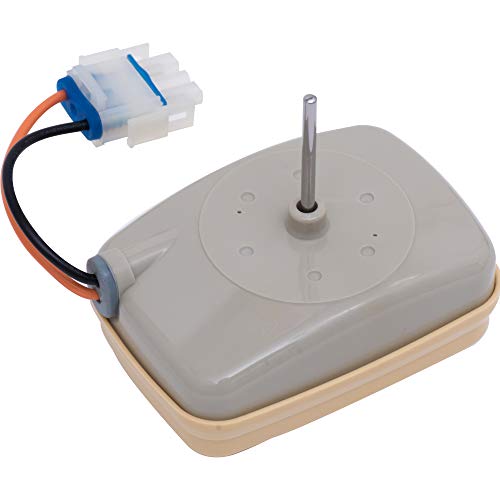


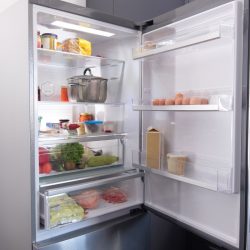

![Disassembled refrigerator compressor, How To Quiet A Noisy Refrigerator Compressor [8 Different Ideas]](https://kitchenseer.com/wp-content/uploads/2022/03/Dissaembled-refrigerator-compressor-250x250.jpg)
